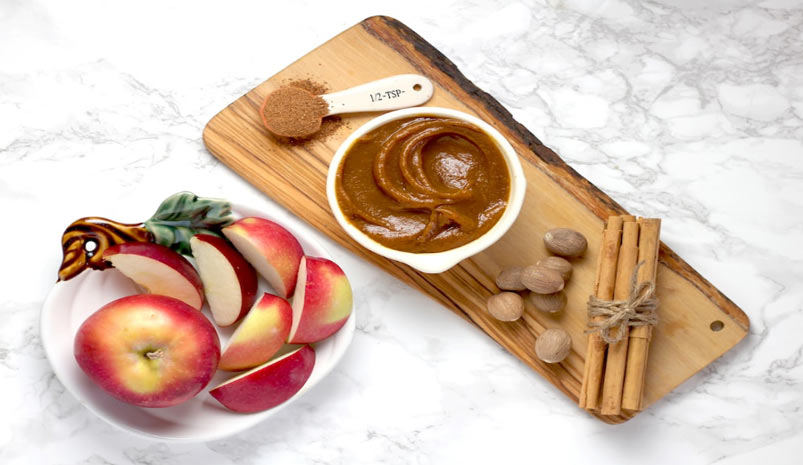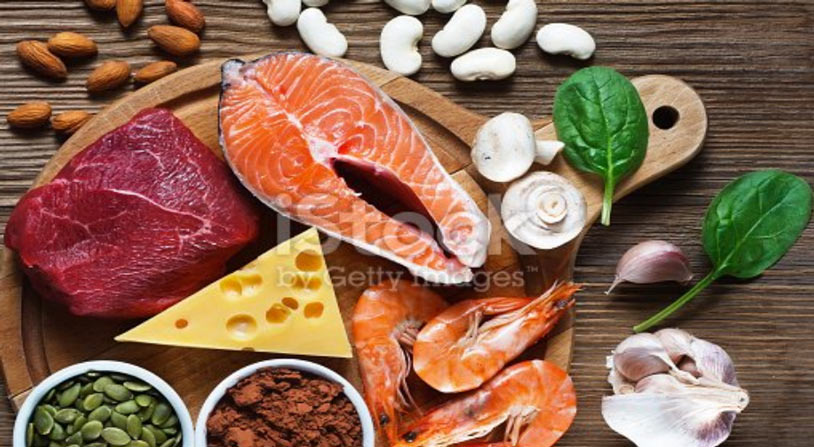Zinc is an essential mineral for human health, and its presence in our diet can help protect against various diseases. Inadequate zinc intake can lead to unhealthy levels of inflammation, interfering with the body's ability to heal wounds naturally, making it difficult to maintain healthy skin and hair.
Fortunately, many foods are high in zinc, which we can include in our diet to ensure adequate levels of this important nutrient. From seafood and dairy products to eggs, nuts, and seeds — let’s explore some of the best foods with high zinc levels.
Beans and legumes - including lentils, chickpeas, black beans, and kidney beans

Beans and legumes - including lentils, chickpeas, black beans, and kidney beans are good sources of zinc. A single serving (1 cup or 175 grams) of cooked beans can provide up to 5 milligrams of zinc, about a third of the recommended daily allowance for adults.
Meat

Meat is a great source of zinc, with lean red meats being some of the best sources. A single serving (3 ounces or 85 grams) of cooked beef can provide up to 5 milligrams of zinc, about one-third of the recommended daily allowance for adults. Other animal-based sources such as pork and lamb are good sources, providing around 2 milligrams per serving (3 ounces or 85 grams).
Seafood
Seafood is an excellent source of zinc — especially shellfish. A single serving (3 ounces or 85 grams) of cooked oysters contains up to 49 milligrams of zinc, about three times the recommended daily allowance for adults. Other seafood, such as crab and lobster, also contain good amounts of zinc, with a single serving providing up to 5 milligrams of this important mineral.
Nuts and seeds
Nuts and seeds are other great sources of zinc — particularly pumpkin seeds. A single serving (1 ounce or 28 grams) of pumpkin seeds can provide up to 6 milligrams of zinc — almost half the recommended daily allowance for adults! Other nuts and seeds such as hemp, sesame, cashews, almonds, and Brazil nuts can also provide good amounts of this important nutrient.
Legumes
Legumes are an excellent source of zinc. A single serving (1 cup or 175 grams) of cooked lentils can provide up to 5 milligrams of zinc, about one-third of the recommended daily allowance for adults. Other legume-based foods such as black beans, split peas, and chickpeas are good sources, providing around 2 milligrams per serving (1 cup or 175 grams).
Eggs
Eggs are a great source of zinc — particularly the yolks. A single egg contains up to 1.3 milligrams of zinc — almost 10% of the recommended daily allowance for adults. Furthermore, eggs are also an excellent source of protein and other important vitamins and minerals.
Dairy products
Dairy products such as milk, yogurt, and cheese are also good sources of zinc. A single serving (1 cup or 250 milliliters) of whole milk can provide up to 1.2 milligrams of zinc — almost 10% of the recommended daily allowance for adults. Furthermore, dairy products are also an excellent source of calcium and other important vitamins and minerals.
Fortified cereals
Many breakfast bowls of cereal have been fortified with zinc, providing a convenient way to increase our intake of this important mineral. Check the labels on cereal boxes to see how much zinc they contain — some brands can provide up to 25% of our recommended daily allowance per single serving.
Whole grains
Whole grains such as oatmeal, quinoa, and brown rice can also provide good amounts of zinc. A single serving (1 cup or 160 grams) of cooked oatmeal contains up to 0.9 milligrams of zinc — around 7% of the recommended daily allowance for adults. Other whole grain-based foods such as wheat germ, barley, and bulgur are also good sources.
Some vegetables
Some vegetables are also excellent sources of zinc. A single serving (1 cup or 140 grams) of cooked spinach contains up to 0.8 milligrams of zinc — around 6% of the recommended daily allowance for adults. Other vegetables such as mushrooms, asparagus, and sweet potatoes are good sources, providing around 0.5 milligrams per serving (1 cup or 70-140 grams).
Dark chocolate
Dark chocolate is an excellent source of zinc — particularly in the high-cacao varieties. A single serving (1 ounce or 28 grams) of dark chocolate can provide up to 1 milligram of zinc, about 7% of the recommended daily allowance for adults. Furthermore, dark chocolate is also a great source of antioxidants and other important nutrients.
Many foods contain high levels of zinc, which we can incorporate into our diet to ensure adequate intake of this important nutrient. There's a wide range of delicious foods, from beans and legumes to seafood, nuts and seeds, eggs, dairy products, fortified cereals, and whole grains. Furthermore, dark chocolate is also an enjoyable and nutritious way to boost our zinc levels.
Benefits of Foods That Are High In Zinc
- Boosts Immunity: Zinc is essential for the proper functioning of the immune system and helps to fight off infections such as colds and flu.
- Aids in Wound Healing: Adequate levels of zinc are necessary for skin cell regeneration, helping to heal cuts and wounds more quickly.
- Supports Cognitive Function: Zinc plays an important role in brain development and function, as well as helping to combat the age-related decline in cognitive abilities.
- Fights Inflammation: Foods high in zinc can help to reduce inflammation associated with conditions such as arthritis, asthma, and gastrointestinal issues.
- Improves Sleep Quality: Zinc helps regulate melatonin production, which can positively affect sleep quality and duration.
- Promotes Healthy Skin: Zinc is essential for healthy skin, helping to reduce the appearance of wrinkles and other signs of premature aging.
- Supports Reproductive Health: Adequate zinc levels are necessary for proper reproductive health in both men and women. It helps to boost fertility and supports healthy pregnancy outcomes.
Incorporating foods high in zinc into our diets is an important part of maintaining optimal health, as it helps provide our bodies with this essential mineral.
FAQS
Are bananas high in zinc?
No, bananas are not high in zinc. They contain trace amounts of zinc (0.2 milligrams per single banana).
What is zinc deficiency?
Zinc deficiency is a condition in which the body does not have enough zinc to meet its needs. Symptoms of zinc deficiency include poor growth, skin rashes, weakened immunity, slow wound healing, infertility, and loss of appetite.
Does low zinc cause hair loss?
Yes, low zinc levels can cause hair loss. Zinc helps regulate hormones responsible for hair growth and is essential for healthy hair. A deficiency in this mineral can lead to thinning and shedding of the hair.
Conclusion
Zinc is an essential nutrient for overall health and is found in many foods. With nuts, whole grains, legumes, and seafood topping the list of dietary sources of zinc, there are plenty of delicious ways to get what you need for optimal health. Eating a variety of these foods throughout the week will ensure you hit your target daily intake and reap the benefits that come with it. If food alone is insufficient or you feel you’re running low on other important minerals, don’t hesitate to supplement your diet.

How to Get Rid of Cellulite on Thighs
Apr 26, 2023

Benefits of Manuka Honey
Apr 20, 2023

Recognizing Prediabetes: Symptoms and Early Warning Signs
Aug 03, 2023

How to Get Rid of Canker Sores
Apr 19, 2023

What Are Goji Berries
Apr 18, 2023

What Is the A-Positive Blood Type Diet
Apr 30, 2023

How to Make a Dry or Moist Warm Compress
Apr 20, 2023

What is a Gastroenterologist
Apr 18, 2023



